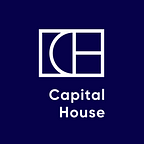Understanding Startup Funding #ACW2018
From the startups of Amsterdam Capital Week 2018
Exactly one month ago, Amsterdam Capital Week brought together over 3,000 startups, investors and innovators with 30+ curated events throughout the city. Each event brought together bright minds, facilitating meaningful connections.
To get to know our audience better, together with our partners at KvK, we asked the startups and a few investors to shed some light on their sides of the funding table…
Here are the results!
Who are the startups attending Amsterdam Capital Week?
The nice thing about the week is that you have so many events, each catering to different audiences. While some focus on growth stage companies or corporate innovation, others connect early stage startups with angels and investors.
With this research, we looked mainly into early stage startups. Over 30% were bootstrapped and/or self funded, and less than 10% have previously raised money from Angel Investors.
When zooming into the startups that are not currently fundraising, the percentage of bootstrapped companies jumped to 48%. We’re glad they joined the week, and hopefully learned more about funding opportunities while making the right connections for the future of their company.
Nearly 80% of the startups we talked to are currently fundraising, which is a great reason to be active during Amsterdam Capital Week and meet potential investors.
More than 50% of the startups are raising up to half a million euros…
To further understand the stage of the startups, we asked them about the size of their funding needs. More than half were looking for a range of €100,000 to half a million euros, and the remainder were relatively split between: up to €100,000; €500,000 to €1 million; and €1 to €3 million.
Funding: Instant solution or ongoing mission?
How long in advance to startups need to start the fundraising process? It was particularly interesting to see the difference between startups who are currently raising and those who are not.
45% of the startups in the funding process claimed that they start 3–6 months ahead; 30% believed that up to 3 months is enough; 15% said they start 6–9 months in advance; and only 8% said 9–12 months are needed.
> Mainly leaning towards less than half a year!
Startups that are not fundraising, on the other hand, perceived the funding timeline differently. The majority (28%) expected the process to take between 9–12 months. With a tie (19% each) for ‘second place’: 3–6 months and 6–9 months. 14% chose up to 3 months.
> Mainly leaning towards a year!
When asking a few investors for their input, the response was split between 3–6 months & 6–9 months, with ‘up to 3 months’ in third place.
So who is right? This answer changes depending on which investors you ask, as well as the size of the funding. But one thing is certain, the personal connection between investor and startup is crucial. Which brings us to our next inquiry…
The ‘perfect match’ between startups & investors
After asking all of the startups to rank the top factors for a match, there were 2 clear winners: Shared vision & Personal connection. Next up were (in order of ranking): believing in the product; growing the company; making money; the market; other.
It seems that the first step is to find an investor that has a vision for your company and connects with the founders. But what does that investor need to bring to the table?
When asked what criteria is needed in an investor, the top 4 responses (in order) were:
1. experience in your specific industry;
2. providing advice; having a large network;
3. connecting to future investors
Where do you find these investors?
This is an important piece of the puzzle. Overall, the vast majority (77%) listed ‘existing network connections’ — which also fits with the preference for a personal connection with investors.
But what if you don’t have a network, what then? The second ranked method was ‘attending events’ which is a guaranteed way to grow your professional network and meet new people.
This is exactly why Amsterdam Capital Week was created. Initially with the goal of connecting founders and investors, and now connecting the ecosystem as a whole. Although there are endless possibilities to connect online, offline events still play a large role. Just make sure to do your research and select the events of most relevance for you.
— — — — — — — — — — — — — — — — — — — — — — — — — —
What are the main takeaways for founders?
- There are MANY funding options available to startups — from financial institutes, informal investors and angels, venture capital, corporate innovation and more… Your first step is to decide which paths are right for you and your company.
- If you choose to approach investors, do not underestimate the amount of time it will take you. Don’t wait until it’s too late; start early when you still have enough runway to keep you up and running.
- Most importantly, be sure to find the investor that is right for you! Investment is a long term partnership that will impact how you run and grow your business. Ask the tough questions to figure out: Are they right for me? Do we have a shared vision and understanding? Do they know what my company needs?
Thank you to our partners at KVK for partnering with Amsterdam Capital Week and collaborating on this research. Startups, take a look at their Startup Box for financing tips and resources.
